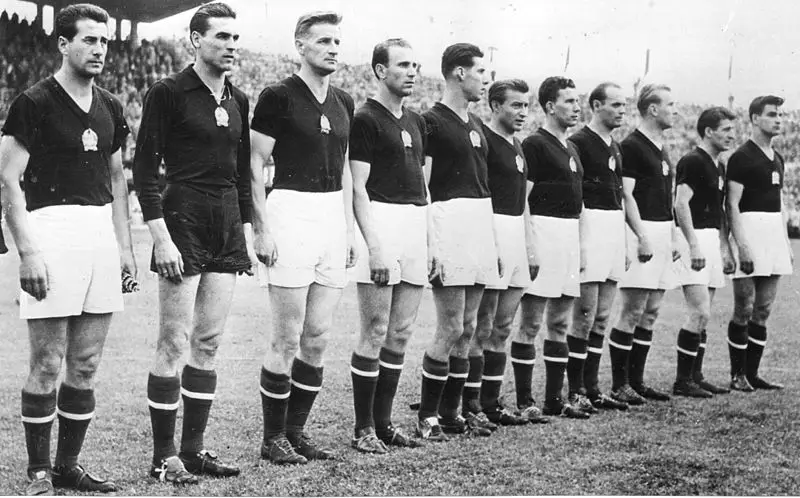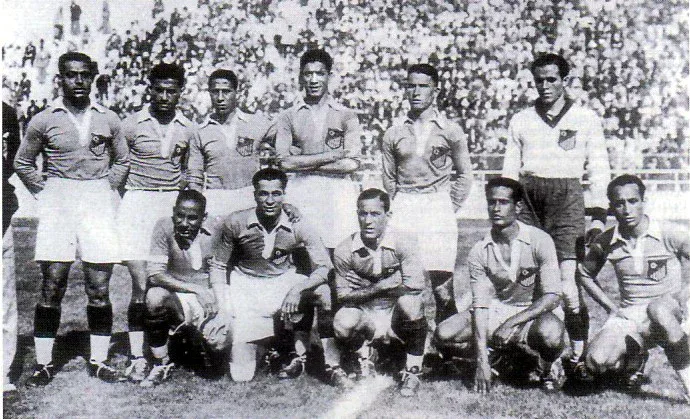The final tournament to feature just 8 teams, despite its small size, was still a hotly contested trophy. Italia ‘90 had been and gone, and despite a record-low goal-scoring haul in the World Cup it had ushered in a whole new era of football; the era of the Premier League.
Grand sponsors, the decline of hooliganism and the sport appealing more and more to mainstream culture in the West thanks to the dulling of the sport’s sharper edges left football with bigger audiences and finances than ever before.
There was a palpable optimism surrounding Euro 92. Buoyed by the start of a decade where technological advancement saw a less bleak existence, there was a sense that anybody could win it.
Just a year before, Red Star Belgrade had stunned the football world by beating a legendary Marseille side in the final of the European Cup.
Just 5 years earlier Romanian side Steaua Bucuresti had accomplished the same feat, becoming the first Eastern European side to win the European Cup.
The sport was no longer a game for Western Europeans to dominate, and with a Yugoslavian side comfortably qualifying, the stage was set for another Eastern triumph.
Except it wasn’t…
War had torn Yugoslavia apart, and after the Serbian General ordered more shelling of Sarajevo, the country was banned from Euro ‘92 that year by FIFA and UEFA.
Many – including the former players – still feel this was Yugoslavia’s tournament to win after years of growing into international football. Denmark, who had finished second behind Yugoslavia in the group stages, would take their place.
A Closely Fought Group Stage
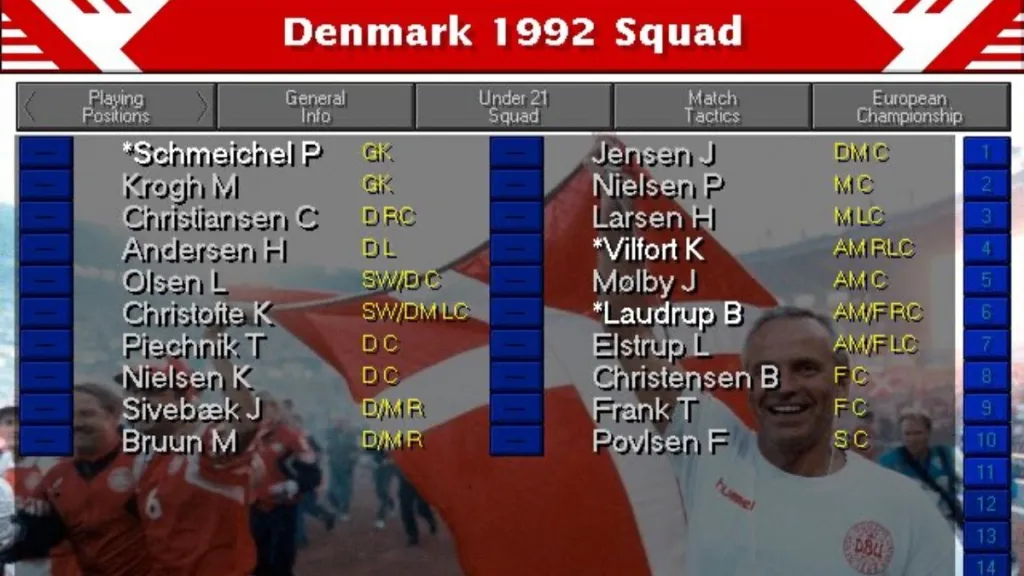
Undoubtedly the Swedish star player was Thomas Brolin, who had proven himself a top Serie A player after two successful seasons with a recently promoted Parma side. But with only two groups the hosts would have to beat some of the world’s biggest footballing nations to book their ticket to the semi-final.
At the time, wins only awarded a side 2-points, making draws a lot more valuable than they are today in a 3-point per-win system. This meant that grinding out a couple of draws against bigger sides and going for it against lesser teams was the general tactic, especially in a tournament with an apparent gulf in quality.
Sweden’s group consisted of France, England and fellow Scandinavians Denmark, making the hosts the favourites for an early exit.
This was an England side that had narrowly lost a World Cup Semi-final to Germany on penalties 2 years earlier. It was a French side featuring Laurent Blanc, Eric Cantona, Didier Deschamps and Ballon d’Or winner Jean-Pierre Papin. And local rivals Denmark were nothing to be scoffed at either…
It’s safe to say of the two groups, this was the group of death and had Yugoslavia not been disqualified, it would have been even scarier. In comparison, the other group featuring Germany, Scotland, The Netherlands and CIS (Commonwealth of Independent States formerly known as the Soviet Union) had two clear favourites.
With just 8 teams you were never gonna get an easy group, but Group A was fully loaded.
Group A was just as close as it promised to be. Only Sweden had managed a win, beating Denmark 1-0. Sweden were the top scorers with two goals. France in second with one and England and Denmark failing to score a single goal in their opening two games.
This left the group wide open. Sweden led with 3 points while England and France sat below, on 2 points, and Denmark bottom with 1. With 3 goals in Group A thus far, the tournament was hardly shaping up to be a classic. But lo and behold with qualification on the line, teams began to actually attack.
Sweden vs. England. France vs. Denmark. 6 goals across the final 2 games in a massive windfall of action. Both games ending 2-1. Who would find themselves in a Euro semi-final after all was said and done?
Sweden and Denmark.
Yes, Sweden had cemented themselves top of the group after scoring an 82nd-minute winner that knocked England out. In doing so they had made the Danes’s brilliant performance against France a salient victory and Denmark had squeezed past both of the bookie’s favourites to join hosts Sweden, just two games away from glory.
Over in Group B, goals were a lot more free-flowing.
Scotland were immediately picked out as the tournament’s plucky underdogs. Following a brave showing against the Dutch, where a 75th-minute Bergkamp strike broke Scottish hearts compounding them to a 1-0 defeat, Scotland were left with it all to do.
Conversely, the former Soviet Union had snatched a point against Germany in a 1-1 draw, which they would build on by shutting out the Dutch in a 0-0 stalemate. In their next match, Scotland faced Germany, looking to pick themselves up and bag some points.
Unfortunately, points didn’t materialise as Germany beat them 2-0, scoring once in the first half and securing the game early in the second. With this, Scotland remained on zero points and dropped out of contention for the knockout stages, leaving the Netherlands, Germany, and CIS to battle it out on the final day.
Germany, on three points, faced the Netherlands, similarly on three points. The Danes took an early lead with a Rijkaard goal four minutes in, followed by a Witschge conversion within another ten.
A goal from Jürgen Klinsmann brought the German deficit to one, but Dennis Bergkamp crushed German hopes of a comeback with a goal seventy-two minutes in. The game ended at 3-1, the Netherlands on five points and Germany on three.
Brutally, any hope CIS had of clinching a point with a draw was snuffed when Scotland came online for their final game of the tournament, scoring all three of their goals of Euro ‘92 in this single game.
At the end of it all, the Netherlands and Germany had qualified for the knockout stage with five and three points respectively. Though they didn’t qualify, Scotland clinched third in their group with their win over CIS, beating them on goal difference.
Scintilating Semi-Finals
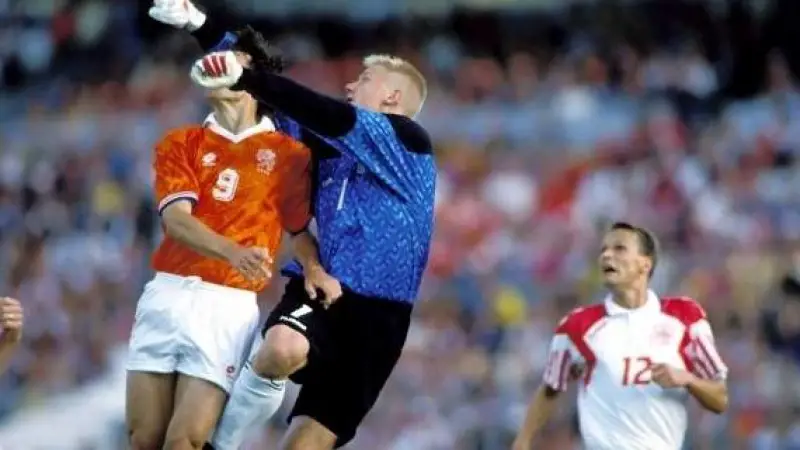
The draw came – Sweden vs. Germany on 21st June, with the Netherlands vs. Denmark the following day. Germany began their attack fast, pressuring the Swedes into allowing a Thomas Häßler goal within eleven minutes. Play continued as such, but neither side could decisively break through again within the first half.
Germany came out once again with an attacking mindset, continuing their pressure on the Swedes, with Karl-Heinz Riedle converting past Ravelli for Germany’s second goal. Facing elimination from the Euros, Sweden dug deeper, mounting attacking runs deep into the German’s half.
Klas Ingesson received the ball in the final third and made a driving run into the German box. However, a poorly timed tackle from German full-back Thomas Helmer knocked Ingesson’s feet from beneath him, ruining his run and sending him to the ground.
Sweden called for the penalty, referee Tullio Lanese awarded it, and Tomas Brolin converted it. 2-1 – Sweden were back in it. Germany responded with another Riedle goal, Sweden came back once again for a final attack, bringing the score to 3-2, but it was all but over. Germany were in the finals.
The Netherlands vs. Denmark proved just as back and forth. First, it was Denmark, then the Netherlands, Denmark, Netherlands, before Denmark won on penalties. NED vs. DEN Euro ‘92 deserves its own article and has one here, click to read it – it’s a doozy. This advances Denmark to the finals to face Germany.
The Final Sprint to Glory
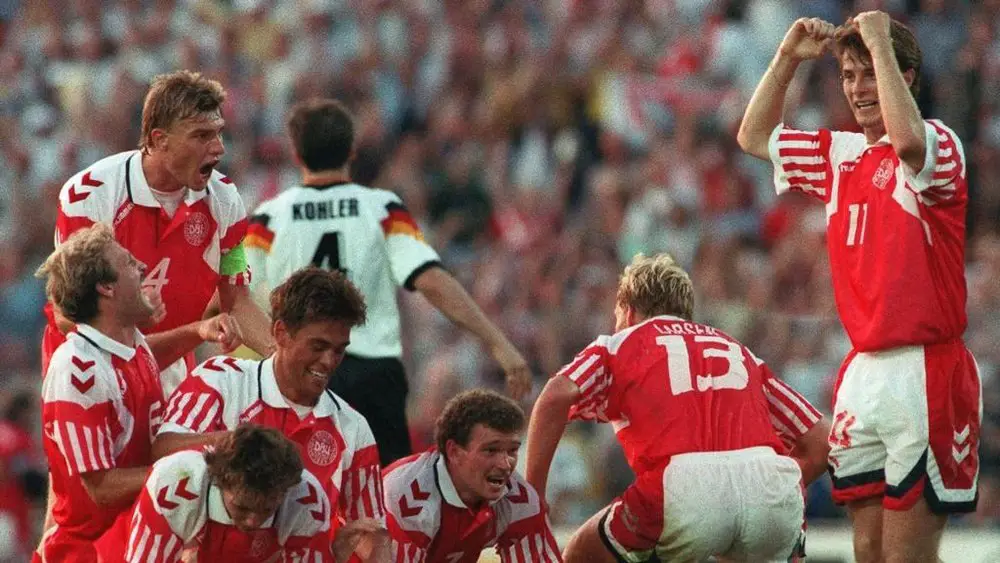
On one of few attacks, Jensen struck a pass first time with power, catching Illgner off guard and giving Denmark a 1-0 lead. Klinsmann broke through the defence and shot low at Schmeichel’s goal four minutes later, but he reached the ball with his fingertips to push it wide.
Weak, desperate – often offside – attacks followed for both sides as they attempted to secure a win or comeback. Schmeichel made several saves and Germany couldn’t convert.
In the seventy-eighth minute, Vilfort received a headed clearance, tapped the ball to the side of two German defenders and secured the game with a shot to the bottom-right; it went in off the post – Illgner even dove and couldn’t reach it, beautiful.
With that Denmark had secured a 2-0 lead, Germany couldn’t come back and the whistle blew, cementing Denmark as Euro winners forever in a tournament that shocked everyone – probably the Danes most of all.

